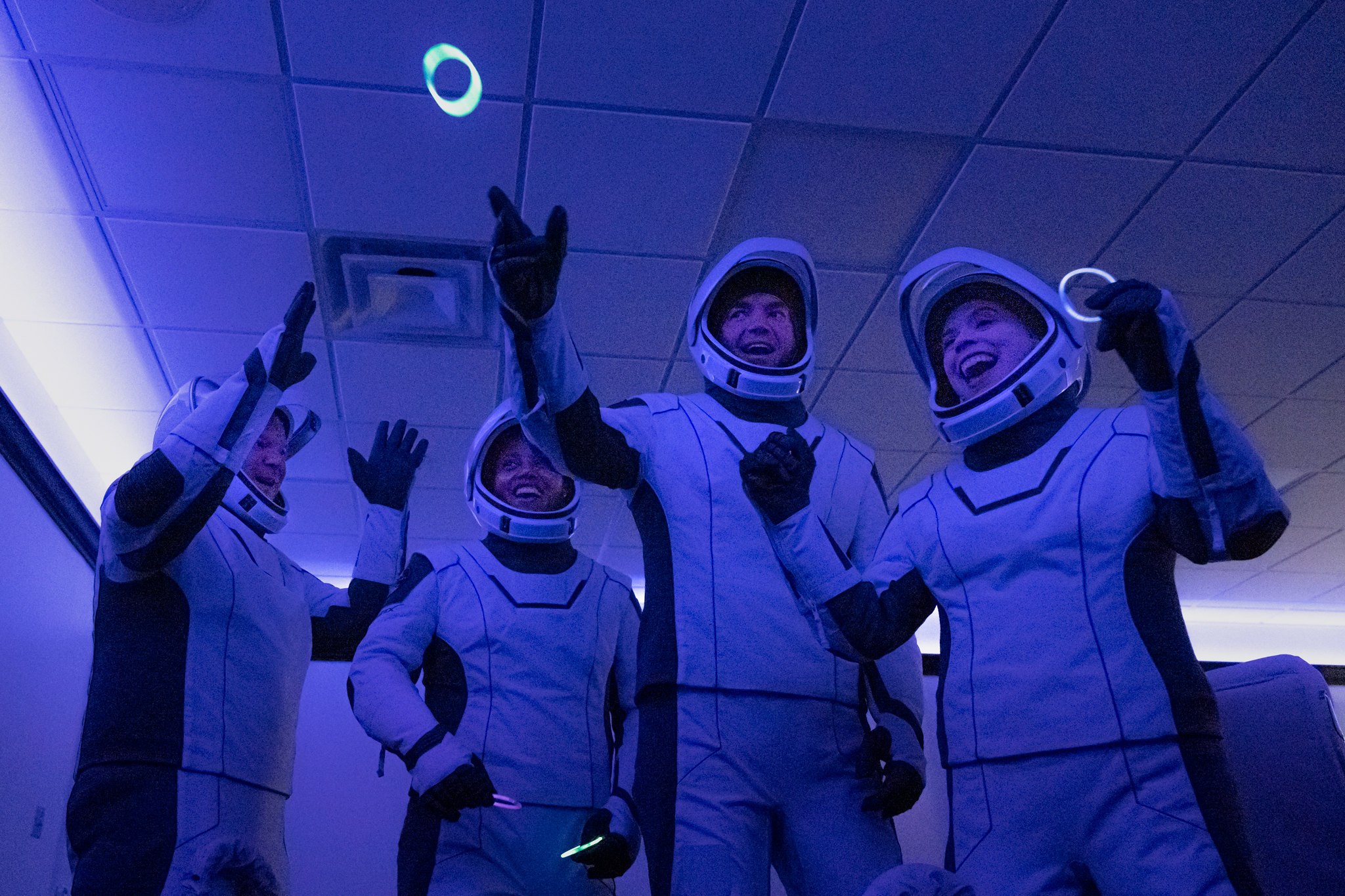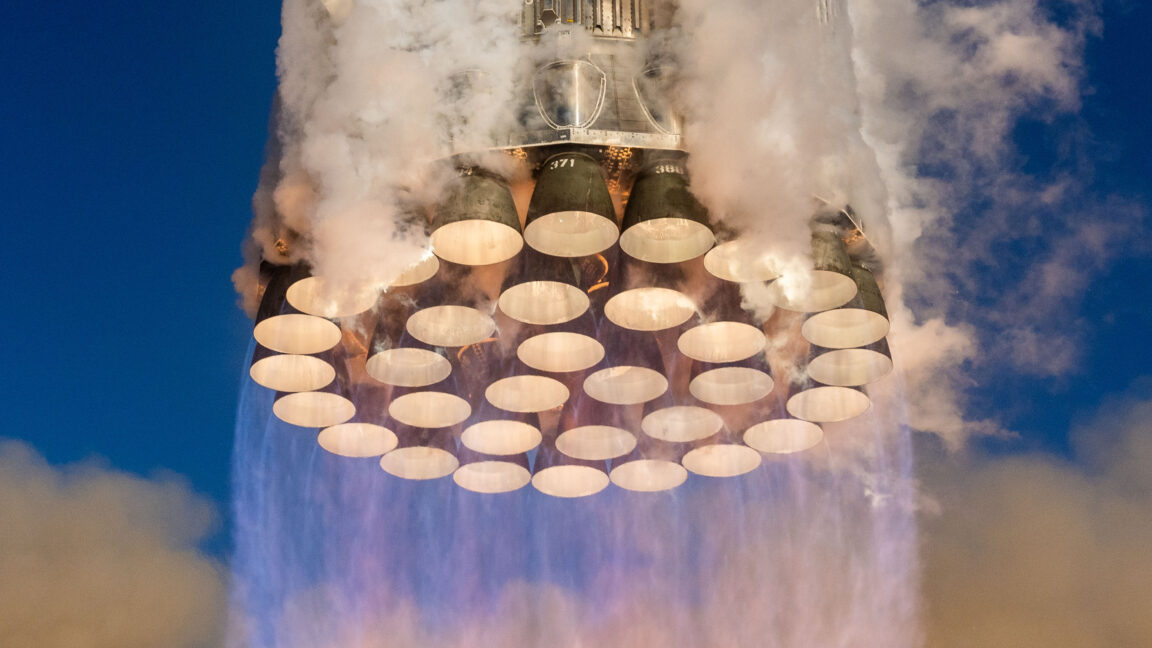There are three US companies now capable of flying people into space—SpaceX, Blue Origin, and Virgin Galactic—and representatives from those three companies told lawmakers on Wednesday that the industry is not yet mature enough for a new set of federal safety regulations for their customers.
A nearly 20-year moratorium on federal regulations regarding the safety of passengers on commercial human spaceflight missions is set to expire on January 1. It was scheduled to lapse at the beginning of October, but Congress added a three-month extension to a stopgap spending bill signed into law to prevent a government shutdown.
That allows a bit more time for lawmakers to write a more comprehensive commercial space bill addressing several issues important to the commercial space industry. These include industry-wide concerns about the Federal Aviation Administration's ability to quickly license commercial launch and reentry operations, a hurdle SpaceX is eager to overcome as it waits for FAA approval to launch the second full-scale test flight of its giant Starship rocket.
There are also complaints from the industry about the large number of federal agencies, not to mention state and local entities, that space companies must go through to obtain final authorization for their missions. Industry representatives, testifying Wednesday at a hearing convened by a subcommittee of the Senate Commerce Committee, argued for legislation to combine these disparate responsibilities into one federal agency, what Wayne Monteith, a former FAA official and Air Force general, called a "one-stop shop" for regulating commercial space activities.
Because it has a firm deadline, one of the more pressing legislative priorities for Congress is deciding whether to extend the moratorium on human spaceflight regulations. The launch and reentry of commercial spacecraft is already regulated by the FAA, which is authorized to ensure the safety of the general public during these operations.
Unanimity among competitors
In a report submitted to Congress on September 29, the FAA said it believes the United States is ready for the sunset of the moratorium. "The FAA will work together with industry and other US government agencies to establish a new safety framework for space transportation providing for the safety of the crew, government astronauts, and spaceflight participants," FAA officials wrote in the report.
But officials from SpaceX, Blue Origin, and Virgin Galactic, the three companies active in the commercial human spaceflight arena, were in lockstep with one another in Wednesday's hearing. All agreed the moratorium on human spaceflight regulations should be extended.
Bill Gerstenmaier, SpaceX's vice president of build and flight reliability, said his company's position is that the learning period should run at least a few more years. “It would be premature by several years to let the learning period lapse, so I call on Congress to extend it."
The FAA established a rule-making committee in June to bring together representatives across the space industry to develop a new safety framework for human spaceflight safety. Their work will continue through most of next year, and until then, the FAA is not expected to institute any new regulations, even if the moratorium expires January 1.
Gerstenmaier said it's important to understand the objective of the regulations. "Are they to help the industry? Are they to fill in a safety gap? ... It’s appropriate to extend this learning period for a significant period of time while we have these discussions among ourselves, and we can make coherent and complete recommendations back to the FAA.”
Phil Joyce, Blue Origin's senior vice president for the New Shepard suborbital rocket, agreed with Gerstenmaier. "We’re still learning, so the learning period is appropriate. Extending the learning period ... is not only going to allow us to develop experience through operations and improve our safety systems, it’s also going to allow new entrants into this industry.”
Virgin Galactic was more specific in its recommendation: Extend the moratorium by eight years.
"I still believe that there should be more flights to collect more data," said Sirisha Bandla, Virgin Galactic's vice president of government affairs and research. Bandla flew to suborbital space on a Virgin Galactic rocket plane in 2021. "About eight years is our ideal timeline for having these discussions."
Bandla said, at a minimum, the FAA and industry should agree on a blueprint for a safety framework before the learning period ends.
“The learning should not lapse without having a blueprint for what a safety framework looks like for human spaceflight, so we can look at what areas need to be regulated, what are the consequences of that, and making sure it’s still light touch to allow innovation, and also, importantly, that the FAA is resourced with the funds and the expertise to carry out that framework," she said.
Another witness at Wednesday's hearing, Caryn Schenewerk, said that given the low number of private human missions to space so far, the premise underpinning the learning period still "appears solid." The industry is not yet mature enough to develop smart regulations that wouldn't stifle innovation, according to Schenewerk, an independent consultant and former government affairs manager at SpaceX and Relativity Space.
Besides, the FAA is already struggling to meet its existing regulatory obligations. “First, they need to get good at doing the regulations that they have on the books today," Schenewerk said.
Lawmakers on Wednesday signaled they are prepared to extend the moratorium, which was established in law in 2004 to allow time for companies to develop new human spaceflight vehicles and start flying them without the burden of government regulations. Lessons learned through development and operations would help inform the FAA on what rules it should write to set standards and regulations for passenger safety. For this reason, the moratorium is often called the "learning period."
But companies took longer than anticipated to start flying people to space on commercial flights. Congress has extended the learning period several times as delays mounted. Now, there have been 13 fully commercial human spaceflight missions to date—three orbital flights with SpaceX, six suborbital launches with Blue Origin, and four flights with Virgin Galactic. These companies' other crew missions that reached space were considered test flights, or in the case of SpaceX, carried professional NASA astronauts.
“We must address the learning period, mission authorization, and other pressing matters in a way that looks ahead to the future with unknown capabilities," said Sen. Kyrsten Sinema (I-Ariz.), chair of the subcommittee on space and science.
The Republican ranking member of the subcommittee, Sen. Eric Schmitt (R-Mis.), said the learning period has helped enable the industry to grow. "It’s important that the learning period be extended to provide both industry and the FAA enough time and data to establish an appropriate off ramp to a more permanent framework for the commercial space industry," he said.
But there are numerous other legislative priorities on Capitol Hill, like electing a new speaker of the House of Representatives and ironing out a federal budget to head off another deadline on November 17. That's when federal funding is now scheduled to lapse, with a government shutdown possible a week before Thanksgiving.


